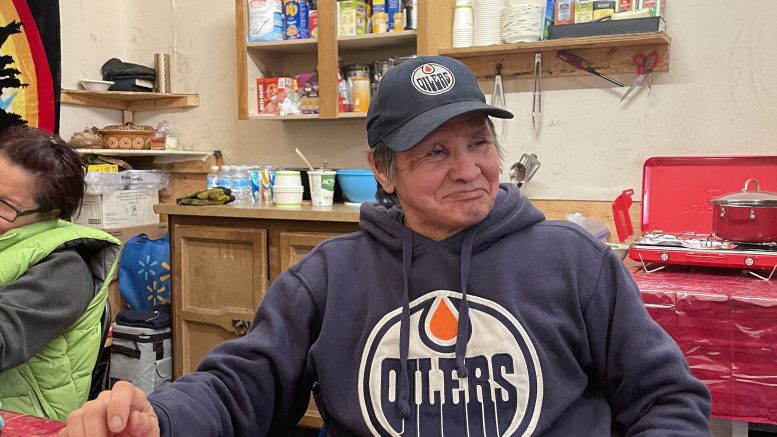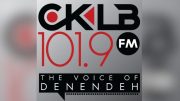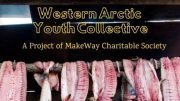Melva Mantla says she spent many nights wondering how she would get her next meal and where she would sleep. But now, the 24-year-old spends her days helping people in a similar struggle.
While she first visited as a client, Mantla now works at the Arctic Indigenous Wellness Camp.
“I wish I had that kind of help when I was in a struggle as well,” she says of her work.
A recent study discusses the camp’s success and benefits of having land land-based wellness camps in urban settings.
This was called Urban Land-Based Healing: A Northern Intervention Strategy.
The study talked about the backstory of the camp — started by the Arctic Indigenous Wellness Foundation (AIWF) an organization that is entirely Indigenous run.
“The involvement of Elders ensured that the traditional protocols of the region were followed in the design, implementation, and oversight of the project,” the study reads.
Nicole Redvers, chair of the AIWF and an assistant professor at the University of North Dakota (UND), is one of the study’s authors. Others include Donald Prince, the former executive director of the camp and Melanie Nadeau, a researcher at UND, a third-party evaluator who ensured the project was impartial.
Redvers explained how most on-the-land wellness camps are in more remote settings, but the proximity of this camp to the homeless population in Yellowknife has had immense benefits.
“The original intent of the camp was to target Indigenous men on the streets, and men who are disproportionately vulnerable to suicide and incarceration,” the study reads.
The study used an Indigenous evaluation framework, meaning it was flexible and responsive to local traditions to ensure that cultural values are incorporated and the community voice is part of the decision-making process.
The final project was approved by the AIWF Elders council and community oversight board, ensuring traditional Indigenous ethical protocols were followed
CKLB Radio spoke with the authors of the project but also had the chance to travel out to the camp to see work in action.
You can listen to that story here:
Patricia Ross is another former-client-turned-worker
“I know what it’s like to be homeless, I know what it’s like to be hungry,” Ross, a cook at the Arctic Indigenous Wellness Camp.
After working at the camp for just a couple of weeks, Ross says “the [camp] gave me the chance to show myself, who I really am as a person.”
The camp has also taught her how to discover and embrace her culture.
Never being taught the traditional Dene way as a child, she says the camp gave her an opportunity to tap into those teachings.
This time, Ross finds herself part of something bigger.
“To have these programs in place today helps a suffering addict realize that they do matter,” she adds, discussing her own struggles with sobriety.
Ross gets up at 5 a.m. to begin breakfast – something she’s proud to do, every day.
The camp offers counselling sessions catered to the individual’s unique needs, coupled with a hearty breakfast.
She says the Elders at the camp have taught her so much and fill her with confidence.
“I don’t feel judged here,” she says.
Ross describes the camp and connecting with nature as being more “empowering” than a sobering centre.
Being Indigenous-owned and operated plays a vital role as well, she says.
What inspires Ross on her journey is knowing she is not alone, being at the camp and helping other vulnerable members of the community reminds her of that.







